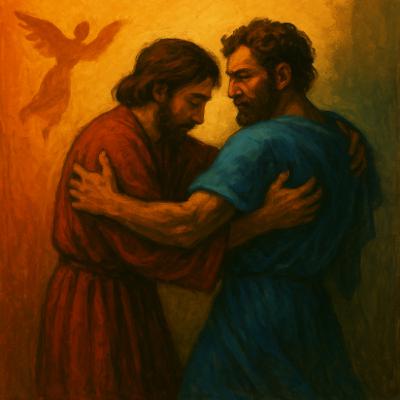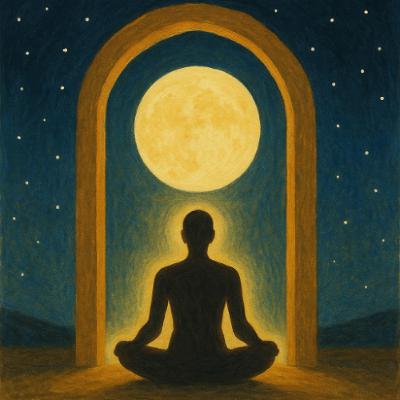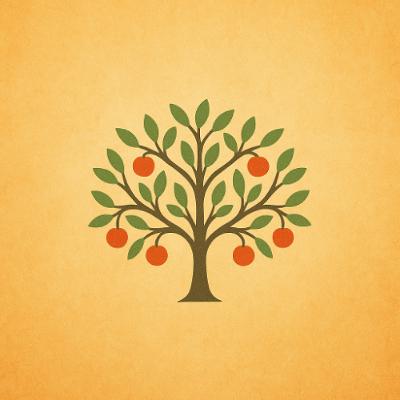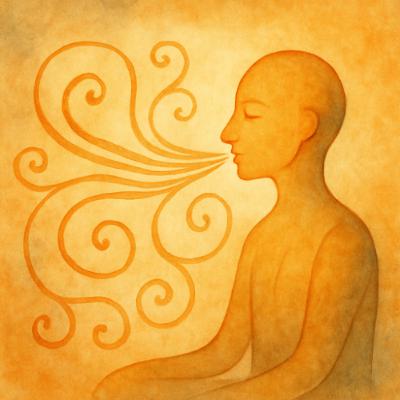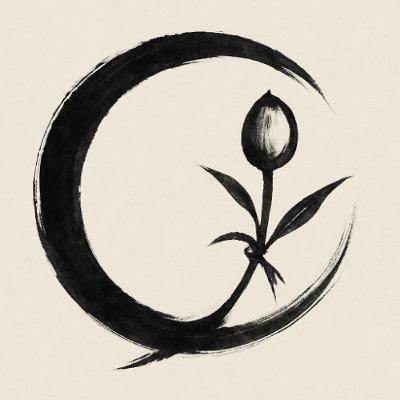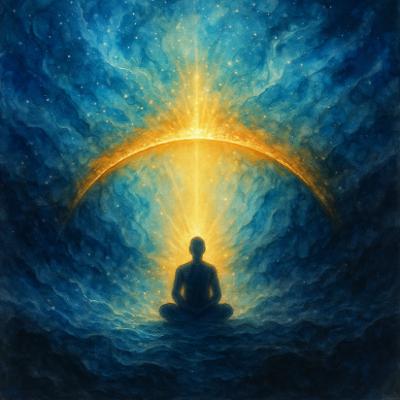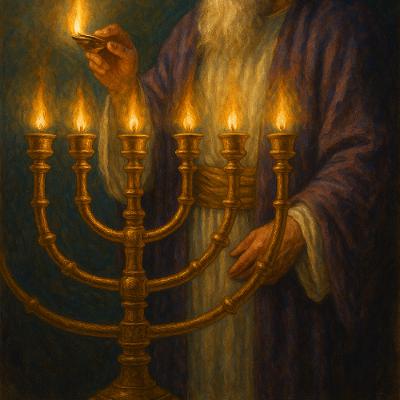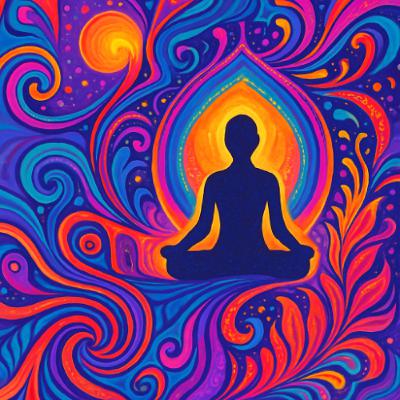Discover The Neshamah Project
The Neshamah Project

607 Episodes
Reverse
This episode explores how our words of Torah, prayer, and intention become “messengers” that protect and guide us when we face our inner Esau, the parts of us that pull us off our path. Drawing on Siach Chayyim, we look at Jacob’s strategy of splitting into “two camps” of awe and love as a model for spiritual resilience, and with Or HaMeir we dive into Peniel as the practice of seeing the Divine “face within the face” in every situation. Together, these teachings frame our daily work as lifting scattered sparks of presence and finding healing not by erasing our limp, but by carrying our wounds with conscious awareness.
In this week’s episode we explore commentaries from the Skulyer Rebbe and the Or HaMeir, each offering a fierce little window into inner change—lifting ourselves from old patterns, giving voice to buried truth, and integrating both our hidden and revealed selves.
This episode weaves three Degel teachings from Toldot into one arc: Torah-awareness as the “added hey” that opens new possibilities, the idea that our personal lack mirrors a deeper cosmic wound, and the insight that real change comes not from merit but from aligning with the deeper current of mazal. Each teaching becomes a practice: expanding consciousness, healing the world through our own healing, and learning to face the truth of where life is actually carrying us. Together they offer a compact toolkit for spiritual realignment and human thriving.
This week we sit with the Degel’s teaching that Sarah—Shekhinah—becomes “whole” in Kiryat Arba, the place where four directions of Divine flow meet. The mystics say wholeness comes when our own inner movements—reaching, receiving, grounding, and envisioning—come together. When they do, we become a source of nourishment for ourselves and others. This episode explores how to gather those four currents and touch a taste of “Hebron,” the world-to-come that appears in the here-and-now.
In this episode of The Neshamah Project, we explore two luminous teachings from the Maor VaShemesh that reveal how embodied life itself can become a vessel for awakening. First, we reflect on Abraham’s transformation into a living conduit of divine presence—his body, breath, and being illuminated from within. Then we turn to his moment at the tent’s entrance, where overwhelming spiritual light brings him to the edge of dissolution, and simple acts of hospitality become a grounding force. Together, these teachings remind us that spirituality isn’t about leaving the body—it’s about coming home to it. The sacred moves through breath, touch, and service. Presence is found not in escaping the world, but in loving it fully.
In this episode, Rabbi Ben Newman reflects on a teaching from the Maor VaShemesh about Abraham’s journey as a metaphor for our own spiritual unfolding. What does it mean to “go forth” from the stories we’ve inherited — from our comfort zones, our expectations, even our own self-image? Drawing on Hasidic wisdom and Psalm 45, Ben explores how letting go can open us to authenticity, courage, and divine delight — the beauty of becoming who we truly are.
In this episode of The Neshamah Project, we explore a luminous teaching from the Kedushat Levi on Genesis 2:17. Rabbi Levi Yitzhak of Berditchev reimagines the story of Eden not as a tale of sin, but as a lesson in spiritual readiness — about what happens when we try to take in more light than we can hold. Through reflection and interpretation, we uncover how this Hasidic insight becomes a tool for human thriving: transforming darkness into light, overreaching into wisdom, and our daily struggles into sparks of awakening.
In this episode of The Neshamah Project, we explore two luminous teachings from the Maor VaShemesh on Kohelet. First, “All is breath” — a vision of life as sacred exhalation, where every word and action flows from divine intention. Second, “The breath of many voices” — a reminder that when we gather in prayer, song, or silence, our shared breath reshapes the world. Together, these teachings invite us to return to simplicity, to presence, and to the living rhythm that connects every soul.
After the death of Aaron’s sons, the Torah places the Yom Kippur service—why there, and why “not at all times” yet “once a year”? Drawing on the Maor VaShemesh, we explore how all souls are one body, how one mitzvah can tip the world, and why true teshuvah requires discernment—opening wide on “Yom Kippur moments” while keeping loving boundaries the rest of the year. Includes a practical reflection for shifting destructive patterns personally, communally, and globally.
In this week’s episode, we explore the mitzvah of bringing the first fruits and the deeper spiritual meaning hidden within it. The Maor VaShemesh teaches that the practice is not only about gratitude, but about desire itself—how we meet our strongest cravings and transform them into offerings of the heart. Along the way, he weaves the story of Laban, Egypt, and the gathering of holy sparks into a map for spiritual life, reminding us that every act of restraint, every pause before pleasure, can help repair something ancient. What does it mean today to dedicate our “first fruits”—our first energy, first thoughts, first creativity—to the sacred?
Two Hasidic masters read the portion of Ki Teitzei in strikingly different yet complementary ways. The Maor VaShemesh teaches that “returning a lost ox or sheep” is about guiding a friend back when their awe or love has strayed—while also knowing when silence and patience are the greater acts of care. The Maor Einayim turns the command to build a guardrail on your roof into a teaching about guarding the mind itself, raising thought in silence to the Divine when faced with adversity. Together, these teachings offer modern seekers wisdom on friendship, boundaries, resilience, and cultivating inner guardrails of awareness.
A Tale of Trust — Rebbe Nachman tells the story of a king who, despite his wealth, discovers true freedom from worry in the joy and faith of a poor fiddler. Again and again, the fiddler’s livelihood is taken from him, yet he adapts with trust, resilience, and song—until even iron itself turns to wood. A timeless teaching on living with radical trust in the midst of uncertainty.
What if every act of honest judgment made you a partner in the unfolding of Creation? In this episode, we explore mystical and Hasidic teachings on justice from Degel Machaneh Ephraim and Maor VaShemesh. These powerful texts invite us to see righteous discernment—not just in courtrooms, but in our inner lives—as a sacred act of cosmic co-creation. We’ll uncover how true leadership begins with integrity, how our intentions shape spiritual realities, and how becoming our own inner judge and officer can lead to profound healing, both personal and collective.
In this episode of The Neshamah Project Podcast, we explore two teachings from the Maor VaShemesh on Parashat Re’eh. The first reminds us that the fullness of any mitzvah is revealed when practiced in humility and within community, where the “whole commandment” is lived through collective intention. The second turns our attention to longing itself as a sacred practice: even when commandments tied to the land or Temple cannot be fulfilled, we are called to yearn, to hope, and to hold them in our hearts. Together, these teachings guide the modern seeker toward belonging, humility, and holy yearning.
In this episode, Rabbi Ben explores the Maor VaShemesh’s teaching on Parashat Eikev, revealing a Torah so vast it had to be compressed to fit into our world. We journey from the primordial origins of Torah, teshuvah, and Eden to the promise of their full unfolding in the world of soul. Along the way, we find that even now—amid our limitations—the covenant and kindness are still safeguarded for us.
In this episode we explore the Noam Elimelekh’s radical insight that the very presence of darkness makes our light shine brighter. Beginning with Korach’s act of “separating himself” and the Genesis image of the rakia—the luminous firmament that divides the waters—we uncover how contrast protects the sincere seeker and turns even small acts of goodness into radiant beacons. Rabbi Ben offers a concise teaching, a contemporary reflection for everyday life, and a short guided meditation to help you rest in the wholeness that emerges through imperfection.
In this episode, we explore a luminous teaching from Kedushat Levi on Parashat Sh’lach: that the glory of the Divine isn’t revealed through perfection or purity, but through our very human capacity to choose goodness in the face of struggle. Drawing on the mystical insight that free will is what makes our spiritual path meaningful, Rabbi Ben Newman reflects on how each moment of conscious choice—each act of compassion, restraint, or faithfulness—helps to fill the world with Divine presence.
This is a message of spiritual empowerment for anyone who’s ever felt overwhelmed, inadequate, or distant from holiness. Through real-life examples and soulful insight, we reframe the inner battle not as a failure, but as a sacred opportunity to partner with the Divine in revealing light.
Why does Rashi praise Aharon simply for not deviating from a command? In this episode of The Neshamah Project, we explore a deep teaching from the Degel Machaneh Ephraim on Aharon's unwavering integrity. We reflect on what it means to live in alignment so deeply that peace and flexibility become expressions of truth. Through the image of the menorah and the soul as a flame, we dive into the nature of spiritual leadership, the balance of emet (truth) and shalom (peace), and how we, too, can become vessels of light.
This week we dive into the Degel Machaneh Ephraim’s luminous reading of the Priestly Blessing, unpacking what it means for grace to be both given and recognized. You’ll hear an inclusive, gender-neutral translation of the text, a fresh reflection on why our inner radiance so often goes unseen, and a gentle guided meditation that helps you kindle your own spark while praying that the world—and your own eyes—are ready to notice it.
In this episode, we explore the Maor VaShemesh’s teaching on how true spiritual maturity moves from loud, visible striving to quiet, inward devotion. Drawing on Torah, prayer, and lovingkindness, we reflect on the path from struggle to deep, silent connection — and how, as Shavuot approaches, we help co-create the light we seek.
✨ A gentle reminder: even in stillness, you help lift the world.


